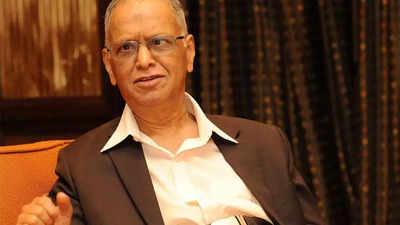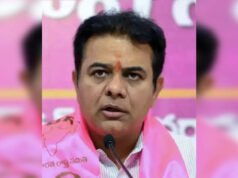Narayana Murthy, the founder of Infosys, has issued a stark warning about the severe implications of climate change for India’s rural and urban landscapes. Speaking at the Sustainability Crusade award ceremony organized by the J P Shroff Foundation, Murthy highlighted the risk of mass migration from uninhabitable rural areas to already strained urban centers such as Bengaluru, Pune, and Hyderabad. His remarks underscored the urgent need for collaborative action among political leaders, bureaucrats, and corporate stakeholders to mitigate the crisis. With rising temperatures threatening to render parts of the country unlivable within the next two decades, Murthy’s call to action serves as a wake-up call for India to address this looming challenge.
Narayana Murthy warns of mass migration
Murthy emphasised that climate change poses a direct threat to rural communities, particularly in states where rising temperatures and environmental degradation could make living conditions untenable. “What is likely to happen is a mass migration from rural parts of states… into habitable places like Bangalore, maybe Pune, maybe Hyderabad,” he said. This migration, driven by the search for livable conditions and economic opportunities, could overwhelm urban centers already grappling with challenges such as overpopulation, inadequate infrastructure, and environmental degradation.
Urban centers under pressure
Highlighting the precarious state of India’s major cities, Narayana Murthy warned that Bengaluru, Pune, and Hyderabad are on the brink of becoming unlivable. “These cities have become extremely challenging to live in, difficult to navigate, and have witnessed rising pollution levels. They are heading toward becoming unlivable,” he noted. The anticipated influx of migrants would exacerbate existing issues, putting additional strain on housing, transportation, water supply, and waste management systems.
Call for collaborative action
Narayana Murthy stressed the importance of collective efforts to address the multifaceted challenges posed by climate change. He called on politicians, bureaucrats, and corporate leaders to work together to devise and implement effective solutions. “We have to ensure that there is no mass migration. That is the challenge,” he stated, emphasizing the urgency of proactive measures to alleviate the pressures on urban centers and improve conditions in rural areas.
Optimism amidst challenges
Despite his warnings, Murthy expressed confidence in India’s ability to meet its climate targets for 2030. He acknowledged the country’s tendency to act “at the last minute” but remained optimistic about its potential to achieve significant progress. This optimism was coupled with a plea for a cultural shift, particularly among the younger generation, to adopt greater responsibility toward society and the environment.
A call to the younger generation
Murthy made an impassioned appeal to the youth, urging them to prioritize social and environmental responsibility. “We must care for the underprivileged sections of society, or else we are no better than animals. Merely wrapping oneself in the national flag does not make one a true nationalist,” he said. His remarks were a reminder of the moral and ethical dimensions of addressing climate change and its societal impacts.
Recognising environmental advocates
The event also honored individuals who have made significant contributions to environmental sustainability. Environmentalist Madhav Gadgil and entrepreneur Alok Kale were recognized for their efforts, with other notable attendees including Dr. Raghunath Mashelkar and industrialist Jamshyd Godrej. The ceremony served as a platform to celebrate achievements while reinforcing the urgency of addressing environmental challenges.
Also read | Airtel recharge plans | Jio recharge plans | BSNL recharge plans







